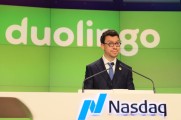The World's Largest Private Companies

💡 Want more business insights? Stay ahead of the curve with our exclusive updates!
👉 Join our Telegram channel for daily business ideas and expert tips.
👉 Follow us on Facebook to never miss a trend or update!
Don’t just read—connect, grow, and innovate with us today!
Most large corporations are in a rush to list their shares on the stock exchange as it brings in cash flow and recognition. However, some companies are too good to share. They prefer to grow independently, avoiding public trading. Remaining a private company has its advantages - no reporting requirements, no shareholder objections, and no need to focus on short-term goals. With proper management, private companies can grow to sizes comparable to their public counterparts.
Terminology

Let's start by defining what a "private" company is. The definition largely depends on your view of a "private" company. For instance, any company not publicly traded can be called private. At the top of this list would be Saudi Aramco, founded in 1930 as a subsidiary of the publicly traded Standard Oil (predecessor to Chevron). After turning profitable in 1950, the King of Saudi Arabia kindly allowed Standard Oil to take half the profit, expropriating the rest. This wasn't the worst-case scenario - the government could have just seized all companies, as was done in 1980.

It's apt to categorize Saudi Aramco as a state enterprise (alongside other giants like China Mobile and Petrochina) and focus on companies that truly emerged from the private sector due to their innovation and continued success today.
Turning Wheat into Dollars

Over the past few decades, the title of America's largest public company has shifted - from General Motors to Microsoft to ExxonMobil. However, the largest private company has held its ground for a long time. It's not widely known globally or even in the United States. Valued at $27 billion, it supplies a quarter of all U.S. grain exports. This company is Cargill.

Only a dozen U.S. public companies have a higher revenue than Cargill, and few match its international reach. Operating in 65 countries across all inhabited continents, with a workforce of 142,000, Cargill imports a quarter of all beef entering the U.S. When you consider all aspects of Cargill - from phosphate production to energy trading, its annual revenue amounts to $100 billion.
So, who owns Cargill? The Cargill family, of course. Holding 90% of the conglomerate, there are no indications they plan to sell any part of the business anytime soon.
Owning "Koch" and Smiling

Slightly smaller but equally influential, Koch Industries is big enough to rank among the top 20 U.S. companies. Founded by family patriarch Fred Koch, a chemical engineer who developed an efficient method to refine oil into gasoline in 1927, the company remains in refining while expanding into polymers and livestock. One of Koch's most prominent subsidiaries is Georgia-Pacific, the world's largest pulp and paper producer.

Fred Koch passed in 1967, leaving the company to his four sons. In 1983, brothers Charles and David bought out their younger brother William and Fred Jr. for a staggering $1.1 billion. Holding 42% of the company today, they show no inclination to sell any stake, mirroring the stance of the Cargill family.
Furniture in a Box

Europe's largest private company is a Swedish furniture manufacturer founded in 1943. The net worth of IKEA's shareholders stands at $23 billion, and the company has stayed true to its original business model. Today, it operates hundreds of stores across many countries, promoting simple functionality and minimalism to the masses.

The company's founder, teenager Ingvar Kamprad ("IK" in IKEA), now 86 years old, resides in Switzerland. In 1982, he set up a charitable foundation that still manages a portion of the company. The full ownership structure of IKEA extends beyond the scope of this article. Stichting INGKA Foundation, Kamprad's foundation, owns the holding company that, in turn, holds 90% of IKEA's stores. Another entity under the IKEA brand owns a separate holding company controlling IKEA's intangible assets (trademarks, etc.), owned by another Kamprad-founded fund based in Liechtenstein, allowing IKEA to save millions in taxes every quarter.
Conclusion
Typically, all successful private companies are sizable. Most of them consistently reinvest their profits. Private companies don't worry about dividend payments, buying back stocks, and other tactics to attract potential shareholders. Hence, private companies possess the flexibility and adaptability that most public companies can only dream of.
💡 Want more business insights? Stay ahead of the curve with our exclusive updates!
👉 Join our Telegram channel for daily business ideas and expert tips.
👉 Follow us on Facebook to never miss a trend or update!
Don’t just read—connect, grow, and innovate with us today!





































.jpeg)













Note: Comments are being moderated and may take a while to appear. There is no need to resubmit your comment.